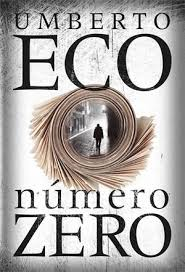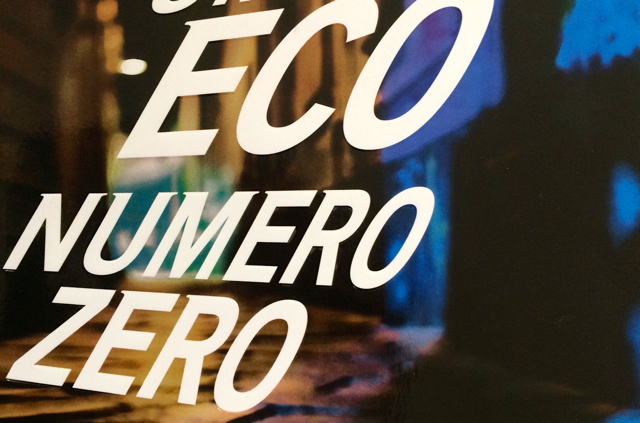


“You’re saying we have to check whether or not the Commendatore is going to like each article?” a character asks Domani’s editor, an amiable hack named Simei. Indeed, news itself is not the issue rather, power is. What Eco is saying is that it doesn’t matter, particularly, what the truth is, that this is not why people turn to news. That’s an interesting idea, and it pushes “Numero Zero” into the realm of satire, as Domani’s writers and editors concoct a succession of stories and features, culminating in Braggadocio’s conspiracy. The purpose is to use the paper as a means of threat, a mechanism of blackmail, with the promise that it will be shut down in return for access to the corridors of power. The paper, called Domani, or tomorrow, is a fantasy, a kind of secret publication, funded by a hotel and communications magnate it intends to publish only “welve zero issues - 0/1, 0/2 and so on - dummy issues printed in a tiny number of exclusive copies that the Commendatore will inspect, before arranging for them to be seen by certain people he knows.” Are the elusive stories Braggadocio unfurls real or are they only his “reconstruction of the facts”? The question takes on added resonance in the landscape of the newspaper office, where nothing is as it appears. Even its protagonists don’t fully believe the narrative they are spinning - until, that is, danger asserts itself. “Numero Zero” sits somewhere in the middle, blending fiction and real-life events. In the former, such a conspiracy is invented, although it still has profound ramifications in the latter, perhaps, not so much. In those books too he illuminates conspiracies with deep roots, stretching across history: a series of shadow narratives that explain, or undermine our explanation, of the world. He remains best known (in America, anyway) for his 1980 novel “The Name of the Rose,” but it is two later novels, “Foucault’s Pendulum” and “The Prague Cemetery,” that “Numero Zero” most invokes. I always said: never believe what they tell you …” That this extends to the very story the reporter is telling is, of course, the whole idea.Įco has long played with the question of meaning - in his criticism and essays, his embrace of semiotics and intertextuality, and his fiction as well. “The point,” a journalist named (aptly) Braggadocio insists, “is everything we heard was false, or distorted, and for twenty years we’ve been living a lie. The story of a newspaper that doesn’t publish, it traces a conspiracy, real or imagined, linking a long line of events in Italian history, from the death of Mussolini to the 1978 kidnapping and assassination of former Prime Minister Aldo Moro by the Red Brigade. Umberto Eco’s seventh novel, “Numero Zero,” represents the continuation of a theme.


 0 kommentar(er)
0 kommentar(er)
